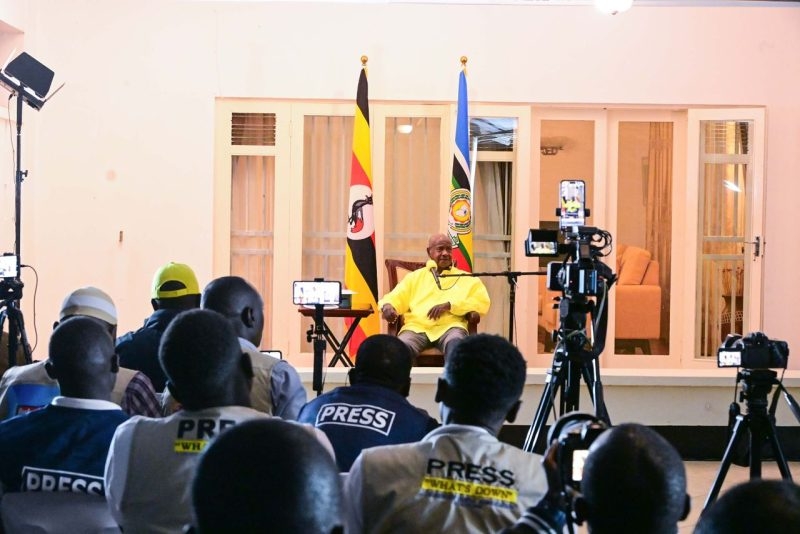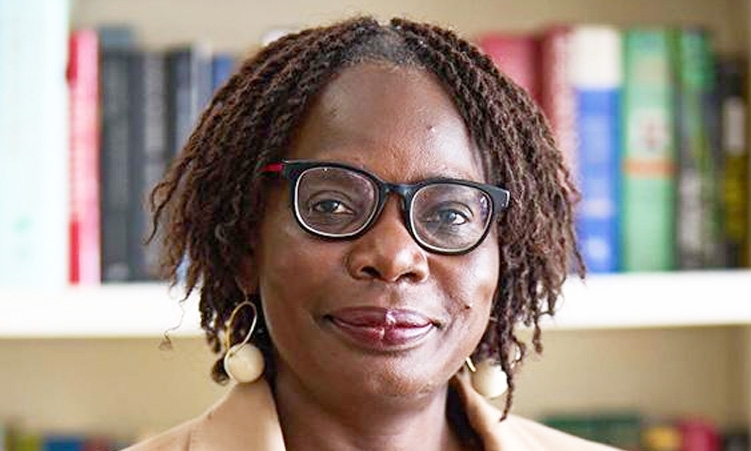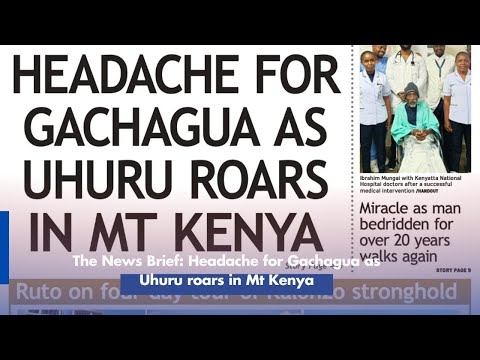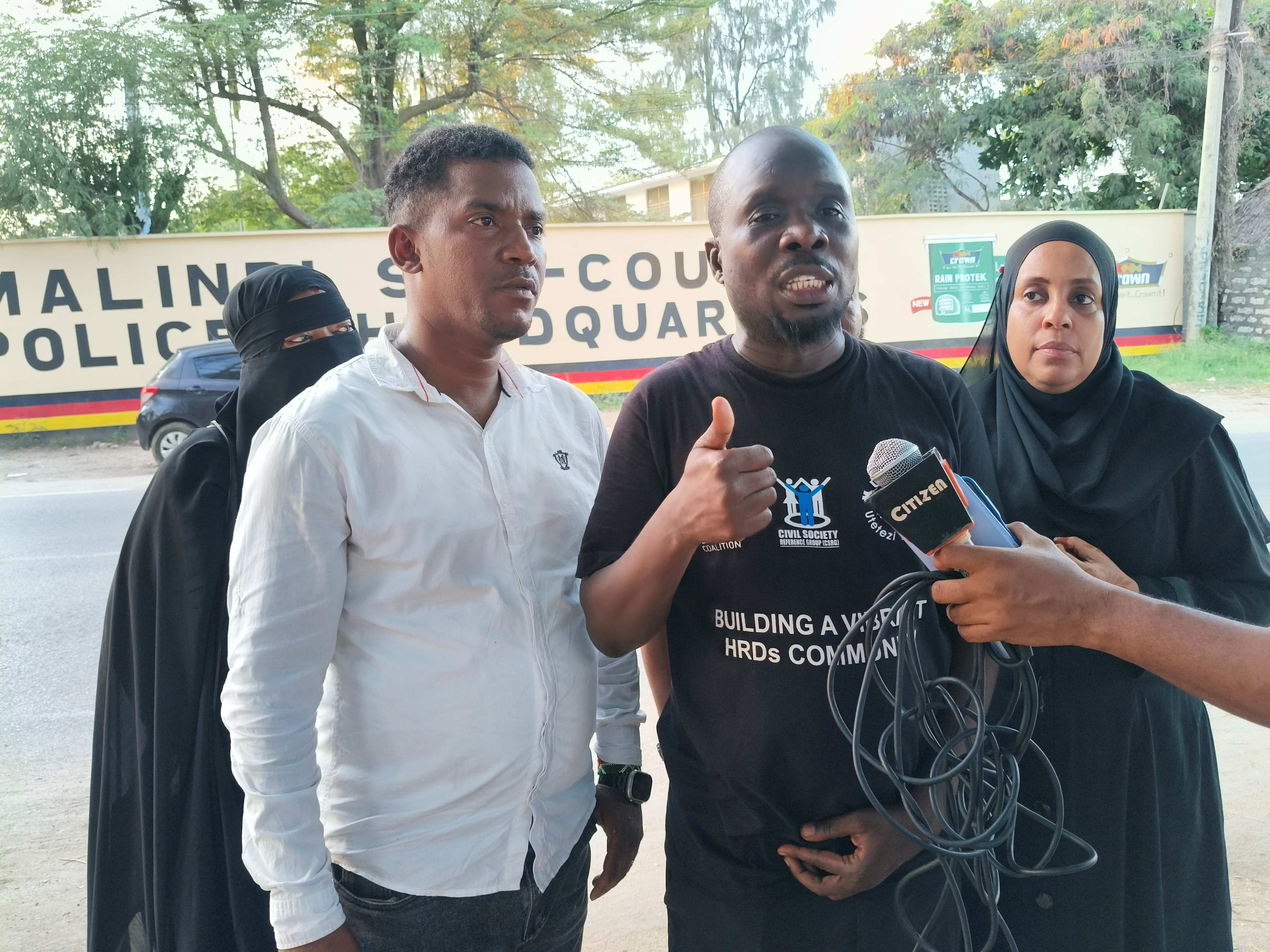
Muhuri’s Francis
Auma / BRIAN OTIENO
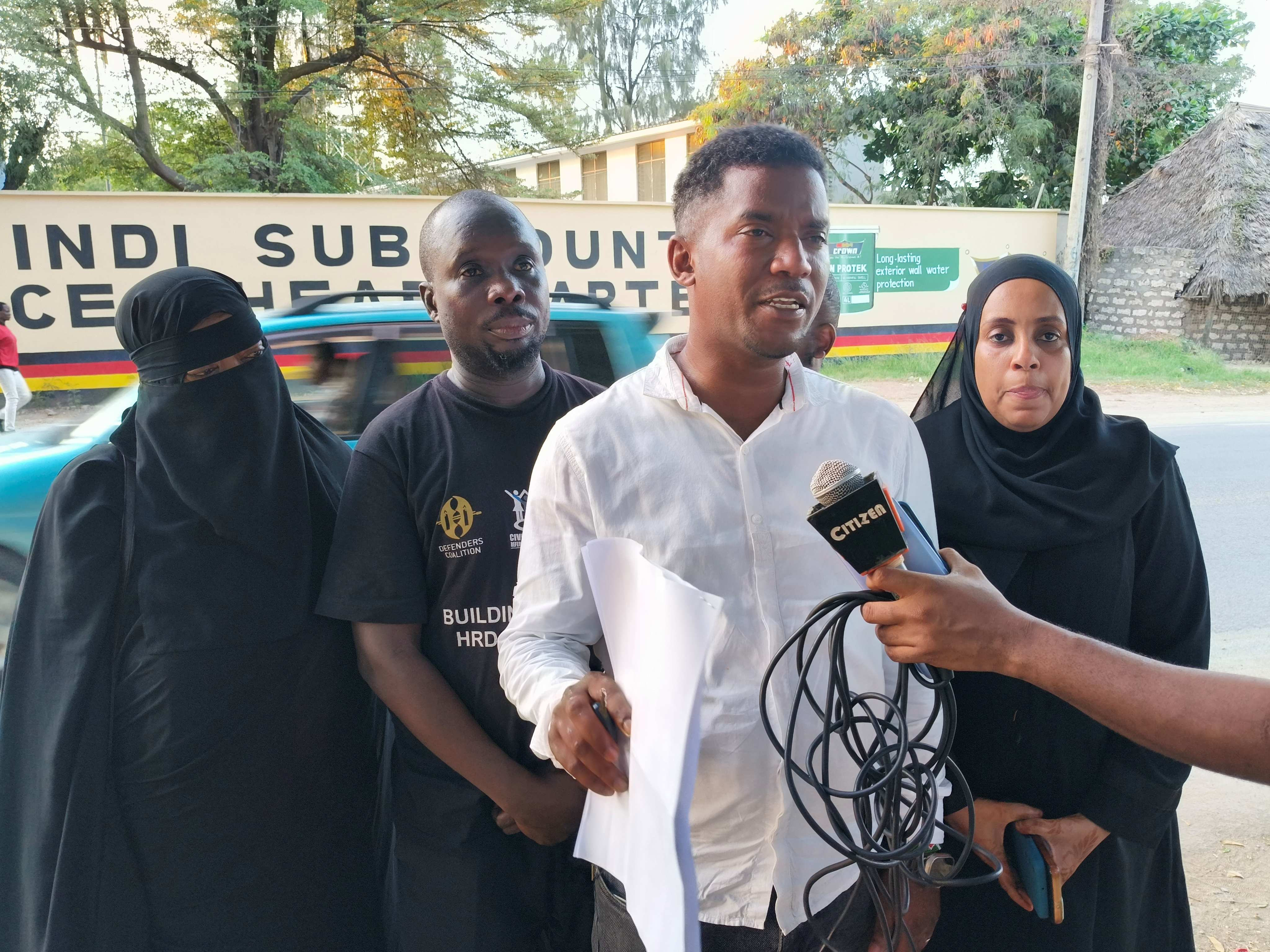 Haki Africa’s
Mathias Shipeta / BRIAN OTIENO
Haki Africa’s
Mathias Shipeta / BRIAN OTIENO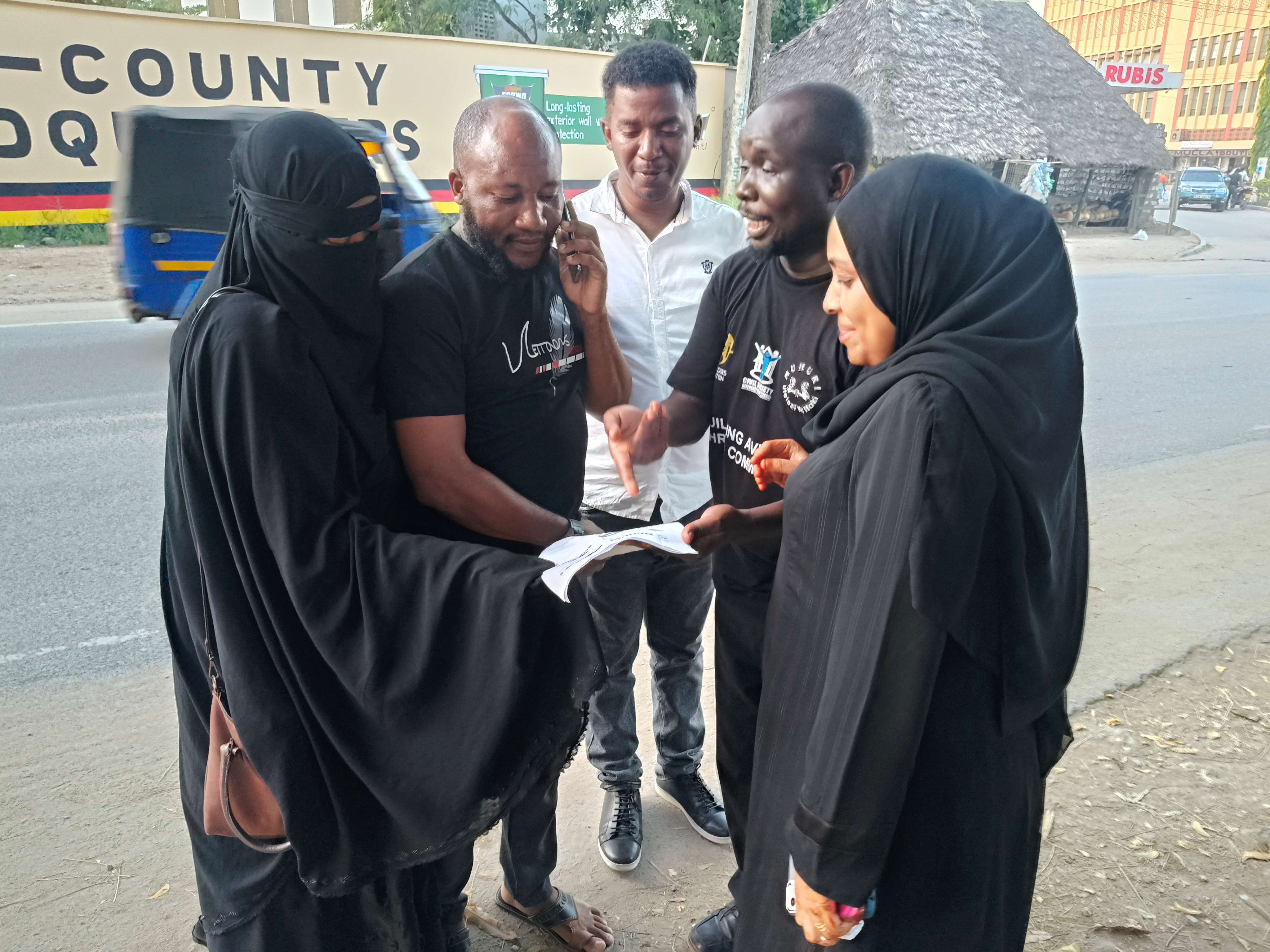 Activists outside
the Malindi sub-county police headquarters on Tuesday / BRIAN OTIENO
Activists outside
the Malindi sub-county police headquarters on Tuesday / BRIAN OTIENO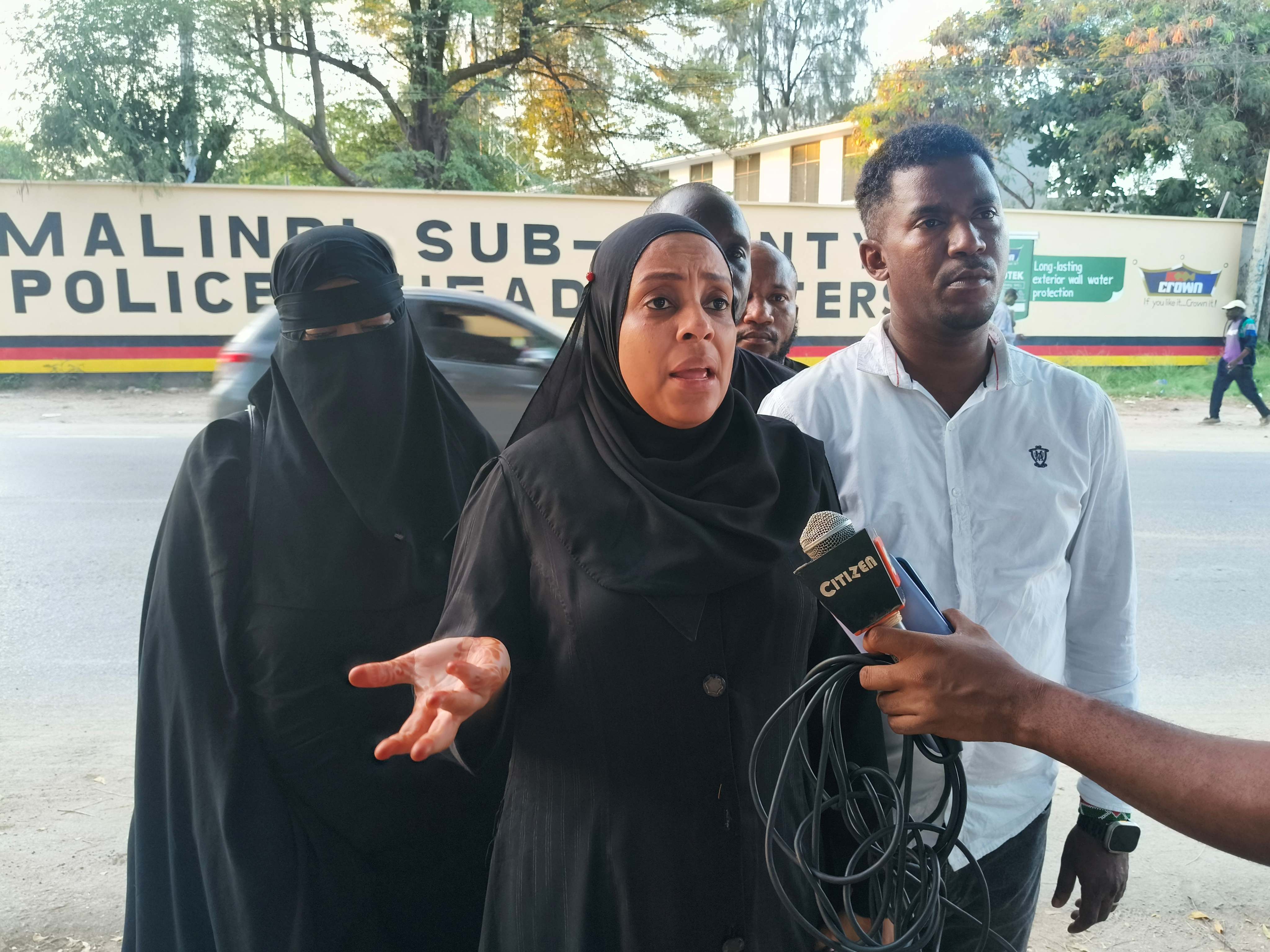 She Rises executive
director Salma Hemed in Malindi / BRIAN OTIENO
She Rises executive
director Salma Hemed in Malindi / BRIAN OTIENO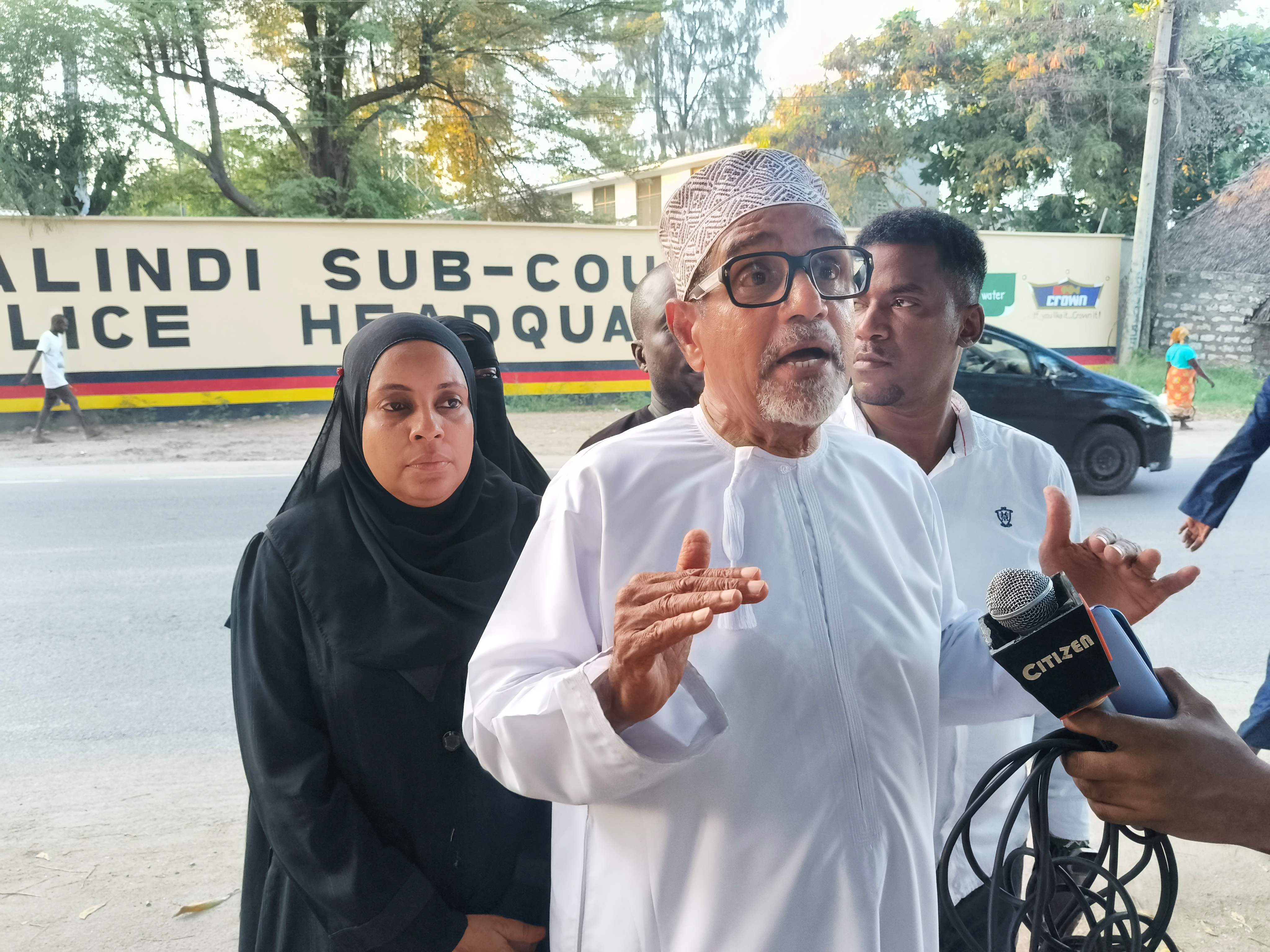 Muhuri director
Khelef Khalifa in Malindi / BRIAN OTIENO
Muhuri director
Khelef Khalifa in Malindi / BRIAN OTIENO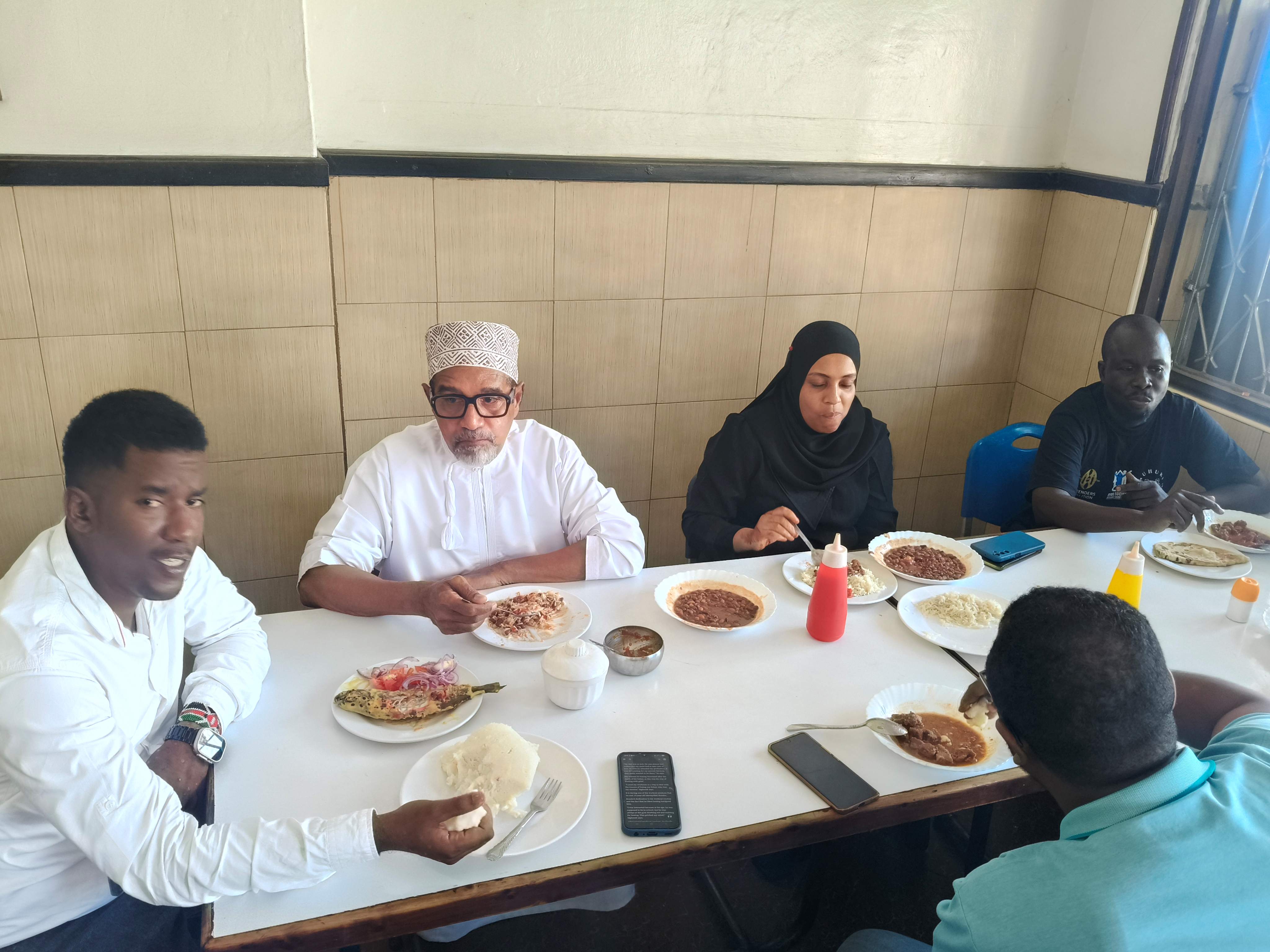 The five activists
have lunch at a Malindi eatery before their ordeal with security personnel at
Fundisa / BRIAN OTIENO
The five activists
have lunch at a Malindi eatery before their ordeal with security personnel at
Fundisa / BRIAN OTIENOThere was drama on
Tuesday afternoon at the Fundisa area along the Malindi-Lamu highway as activists
confronted security personnel manning the highway.
The five activists
from Muhuri, Haki Africa, and She Rises questioned the refusal by the security personnel from Kenya’s Special Operations Group (SOG) to reveal their identities.
The SOG is an elite
unit within the National Police Service focused on high-stakes operations like
counter-terrorism and anti-banditry.
Operatives undergo
rigorous training in marksmanship, stealth, and combat to combat threats like
Al-Shabaab.
The activists, led
by Muhuri director Khelef Khalifa and including Muhuri’s Francis Auma, Shir
Rises’ Salma Hemed, and Haki Africa’s Mathias Shipeta and Atrash Mohamed, said there
is a court ruling that requires all security personnel to clearly display their
name tags and reveal their faces when in operation.
They wanted to deliver a letter to the security
personnel demanding they stop "harassing" motorists, commuters, and
other road users along the highway.
The letter was addressed to Interior CS Kipchumba
Murkomen and questioned the excessive securitization of the Coast corridor.
The bone of contention was the masked nature of the
security personnel, who also refused to reveal their names, which is against a
court ruling that forces security officers to reveal their name tags and faces
when in official operations.
However, one of the
SOG personnel, who appeared to be their leader and who was calm, diplomatic, and
mature in his communication, carefully explained why they do not reveal their
identities, which he said was a security threat to them and their families.
He explained that the
vehicle checkpoint was key to the stability of the country, as they have
intercepted a lot of dangerous goods and weapons, that if they had been allowed to pass,
would have caused mayhem in the country.
While the activists
acknowledged that, they insisted on the court ruling being obeyed, meaning the
revelation of their identities, which SOG personnel refused.
The SOG personnel
said their activities were sanctioned by the National Security Council.
Similar VCPs (Vehicle
Check Points) are in Kanyonyo near Mwingi town, Kina, and Archer’s Post, the
security personnel said.
A few phone calls
were made, and the security personnel confiscated four of the activists’ phones and
the three journalists’ phones and deleted the photos that had been taken and the
videos that had been recorded.
The journalists
included The Star’s Brian Otieno and Royal Media Services’ Ali Roba and Ali
Mwalimu.
Khalifa refused to
give out his phone, saying they could only take it by force or get a court
order.
“But I am not giving
you my phone,” he said.
However, after
about 90 minutes of back and forth, the SOG personnel and the activists appeared
to have come to an understanding and were seen shaking hands and smiling, the
tension having diffused.
“We are happy with
the way you have acted with us,” Khalifa told them.
“We expected you
would rough us up. This is professional of you,” he said.
The five activists
and three journalists were then escorted to the Malindi sub-county police headquarters,
where Malindi sub-county police commander Moses Kosgei had an engagement with
Khalifa and the SOG personnel leader.
After about an hour and a half, all the eight were allowed to go home, and the seven phones
that had been confiscated were returned to them.
“It was a chilling
experience. The security guys were threatening in their language and then
diplomatic at the same time. They kept on switching their languages,” Mwalimu
said.
“When some of them
told us we would be treated as terror suspects, I honestly became scared. But
when they told us to go to the Malindi sub-county police headquarters, I knew
we were safe,” he said.
He said he had at
some point thought they would be forcefully disappeared, as has happened in
other instances.
“A lot was going through my mind. I could not communicate to any of my family members because our phones had been confiscated. I knew people would get worried if word reached them that we had been arrested by not the regular police but by the SOG,” he said.


